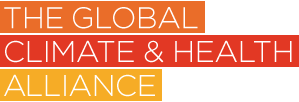
WHO report calls for ambitious climate commitments as the only path to long-term recovery from pandemic
Geneva, 11 October 2021 – Just three weeks ahead of the UN climate conference (COP26) in Glasgow, UK more than 400 organizations representing at least 45 million nurses, doctors and health professionals worldwide – about three quarters of the global health workforce –have signed an open letter to the 197 government leaders and national delegations ahead of COP26, warning that the climate crisis is the single biggest health threat facing humanity, and calling on world leaders to deliver on climate action (1).
The letter’s publication coincides with the release today of a new report by the World Health Organization (WHO), which argues that countries can only ensure a long-term recovery from the pandemic by implementing ambitious climate commitments. The report delivers ten high-level recommendations, backed up by action points, resources and case studies, including the need to place health and social justice at the heart of the UN climate talks (see note 2 below for full list).
The letter states: “Wherever we deliver care, in our hospitals, clinics and communities around the world, we are already responding to the health harms caused by climate change,”. “Those people and nations who have benefited most from the activities that caused the climate crisis, especially fossil fuel extraction and use, have a great responsibility to do everything possible to help those who are now most at risk.”
Speaking about the new WHO report, Dr Tedros Adhanom Ghebreyesus, Director-General of WHO, said:
“Climate change impacts health in all countries, but it hits people in low- and middle-income countries the hardest. Any delay in acting on this global health threat will disproportionately affect the most disadvantaged around the world. The COVID-19 pandemic is a visceral example of the inequitable impacts of such a global threat. To fully address the urgency of both these crises, we need to confront the inequalities that lie at the root of so many global health challenges.”
Jeni Miller, Executive Director of the Global Climate and Health Alliance, said: “Wildfires, flooding, heatwaves and droughts impacting people’s health have been on the rise around the world, compounding other health challenges such as the pandemic. Integrating health and equity into climate policy will protect peoples’ health, maximise returns on investments, and build public support for the urgently needed responses from governments to the climate crisis.”
Both the letter and the report argue that health and equity must be at the center of climate change response; while the letter calls for action, the report provides the blueprint for delivering climate action that will protect the health of people around the world.
The letter, which has been signed by diverse medical organisations and high profile individuals, such as WHO Director-General Dr Tedros Adhanom Ghebreyesus, the World Medical Association, the International Council of Nurses and Doctors for Extinction Rebellion Switzerland, calls on all governments to update their national climate commitments under the Paris Agreement, in line with their fair share of limiting warming to 1.5°C. A recent report by UN Climate Change (UNFCCC) found that countries’ collective climate commitments are falling far short of this goal, and would lead to a global temperature rise of at least 2.7°C by the end of the century (3,4).
The 45 million health professionals represented in the letter are demanding a rapid and just transition away from fossil fuels; for high income countries to provide the promised transfer of climate funds; for investments in resilient and low carbon health systems; and for pandemic recovery investments to support climate action and reduce social and health inequities.
The signatories of the open letter represent every region of the world, and include the International Council of Nurses, the World Medical Association, the International Federation of Medical Students Associations, the International Confederation of Midwives, and the International Pediatrics Association. See full list of signatories.
ENDS
Notes to Editors:
- More information on the #HealthyClimate Prescription letter is available here.
- The WHO report “The Health Argument for Climate Action” is available here. As part of key climate action, the report recommends to:
- place health and social justice at the heart of the UN climate talks, prioritizing those climate interventions with the largest health-, social- and economic gains;
- guide a rapid transition to renewable energy, to save lives from air pollution, particularly from coal combustion, ensuring energy security for health care facilities, and end energy poverty;
- promote sustainable, healthy urban design and transport systems, with improved land-use, access to public space, and priority for walking, cycling and public transport;
- promote sustainable food supply chains and more nutritious diets that deliver on both climate and health outcomes;
- finance a transition towards a wellbeing economy;
- mobilize and support the health community on climate action.
- Climate Action Tracker, Fair Share: https://climateactiontracker.org/methodology/cat-rating-methodology/fair-share/
- UNFCCC, Nationally determined contributions under the Paris Agreement, 17 September 2021, https://unfccc.int/sites/default/files/resource/cma2021_08_adv_1.pdf
Contacts:
Dave Walsh, Communications Advisor, Global Climate and Health Alliance, +34 691 826 764 (Europe) – [email protected] is checked regularly.
Ceridwen Johnson, World Health Organization – [email protected]
Arthur Wyns, World Health Organization – [email protected]
Quotes:
International Council of Nurses CEO Howard Catton said:
“Whether it is the pandemic or the effects of climate change, nurses are on the frontlines, and suffering the consequences. These are compounding health crises, and we’ve got to address them together. Nurses are witnesses to this unfolding global crisis and seeing the disastrous impacts at first hand, they can no longer be silent.”
- The International Council of Nurses is a federation of more than 135 national nurses’ associations, representing the interests of the world’s 27 million nurses.
Dr. Maria Neira, Director of the Department of Environment, Climate Change and Health at the WHO, said: “Even as they have been battling to end the COVID-19 pandemic, health leaders everywhere have been sounding the alarm on climate change, and it is time we listened.”
Dr. Enver Hasanoğlu, President, International Pediatric Association, said: “The job of pediatricians around the world is prevention, so that all children can live healthy lives. To protect children from dangerous infections, we give vaccinations and antibiotics. The current climate crisis is an emergency. And the urgent preventive action we must take includes reduction in burning of fossil fuels. Our children’s health, and the health of all future generations, depends on taking action now.”
- The IPA represents 167 national and regional pediatric societies, with more than 1 million pediatricians caring for 2 billion of the world’s children.
Dr Errol R Alden, The Partnership for Maternal, Newborn and Child Health (PMNCH) Health-Care Professional Associations constituency chair
“The Health-Care Professionals Associations constituency of PMNCH strongly supports the call for real, immediate and bold action to address the climate crisis, as outlined in the Healthy Climate Prescription letter. The climate crisis poses an unprecedented threat to vulnerable populations, particularly women, children and adolescents, and we call for them to be at the center of an ambitious agenda.”
- PMNCH Health-Care Professional Associations is the world’s largest alliance for women’s, children’s and adolescents’ health.
Dr. David Barbe, President, World Medical Association:
“When entering the medical profession, physicians take an oath to act for the benefit of their patients and to “do no harm.” All physicians can note in their daily practice the harmful impact of climate change on the health of their patients. They have an ethical duty to advocate for an urgent sustainable response to reverse the detrimental climate trend. As the global organisation representing physicians, the WMA is proud to be part of the global health community calling for ambitious and immediate climate action ahead of COP26 to avert this major health threat facing humanity”.
- WMA is an international organization representing physicians, with membership made up of 115 National Medical Associations.
About the World Health Organization
WHO works worldwide to promote health, keep the world safe, and serve the vulnerable. Working with 194 Member States, across six regions, and from more than 150 offices, WHO is united in a shared commitment to achieve better health for everyone, everywhere. The goal of WHO is to ensure that a billion more people have universal health coverage, to protect a billion more people from health emergencies, and provide a further billion people with better health and well-being.
Find out more: https://www.who.int/health-topics/climate-change
About the Global Climate and Health Alliance
The Global Climate and Health Alliance is the leading global convenor of health professional and health civil society organizations addressing climate change. We are a consortium of health organisations from around the world united by a shared vision of an equitable, sustainable future, in which the health impacts of climate change are minimized, and the health co-benefits of climate change mitigation are maximised.
Find out more: https://climateandhealthalliance.org/about/
